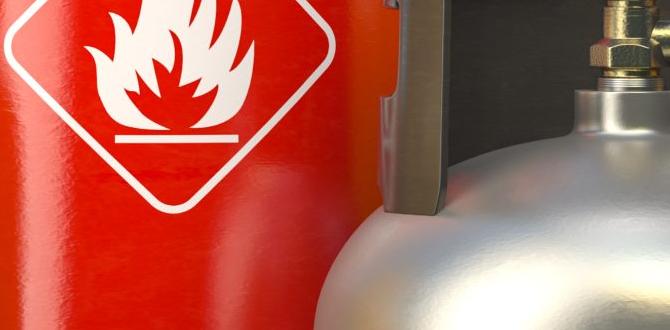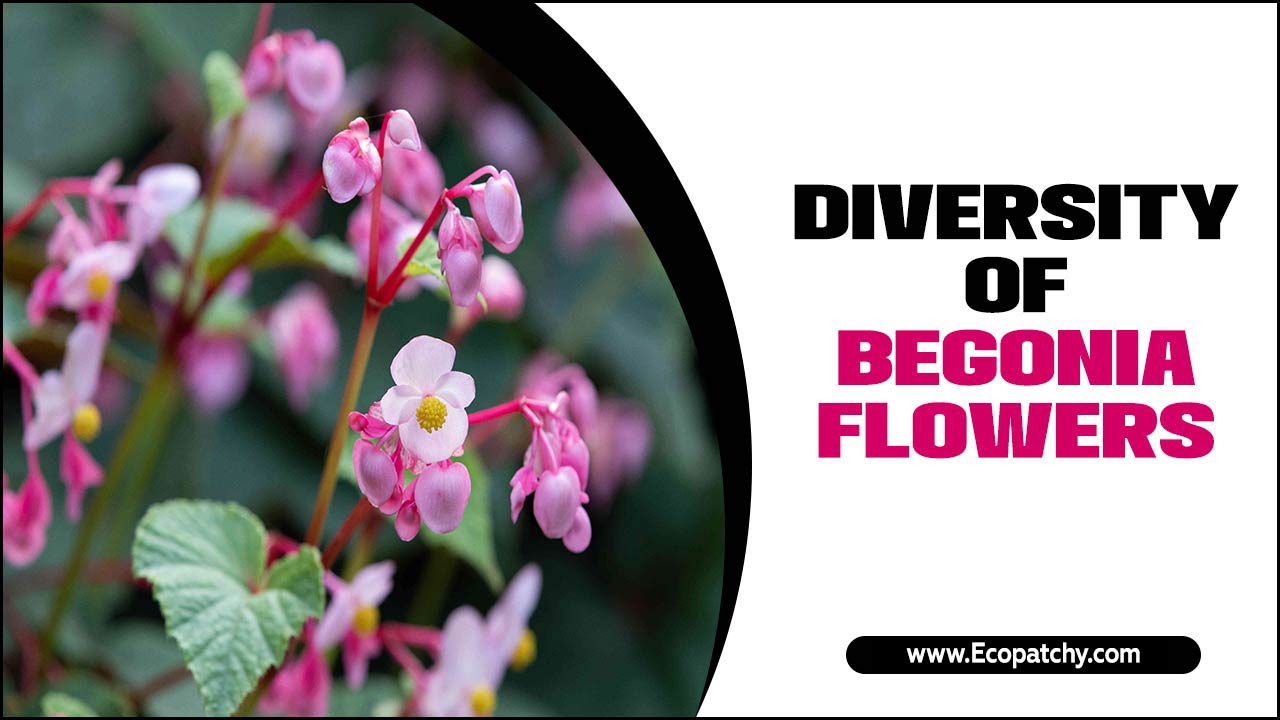Do you want your garden to flourish? Using manure for gardening can be a fantastic solution! Many gardeners swear by it, and for good reason.
Imagine growing strong tomatoes or vibrant flowers with just a little help from nature. Manure, which comes from animals, adds nutrients to your soil. This can make your plants happy and healthy.
Did you know that farmers have used manure for centuries? They discovered it helps plants grow better than plain soil. If you’re curious about how to use this natural fertilizer, keep reading!
Let’s dive into how manure can make your garden the envy of the neighborhood. Are you ready to turn your backyard into a green paradise?
Manure For Gardening: Benefits And Best Practices For Use
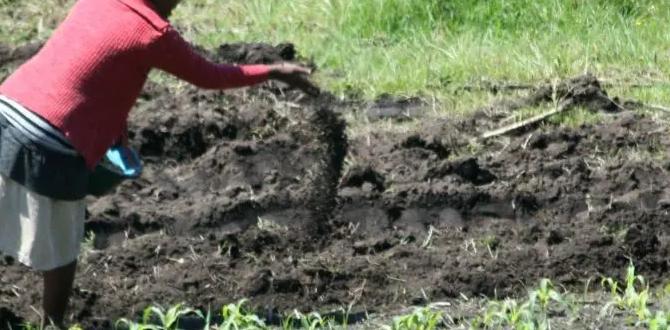
Manure for Gardening
Manure for gardening is a natural way to enrich your soil. It provides essential nutrients for plants, helping them grow strong and healthy. Did you know that different types of manure offer unique benefits? For instance, cow manure is great for vegetables, while chicken manure is rich in nitrogen. Just remember, composting manure first can prevent burning your plants. Using manure not only feeds your garden but also helps the environment by recycling waste. Isn’t that clever?Types of Manure and Their Benefits
Chicken, cow, horse, and sheep manure: nutrient profiles. Organic vs. synthetic options and their impact on soil health.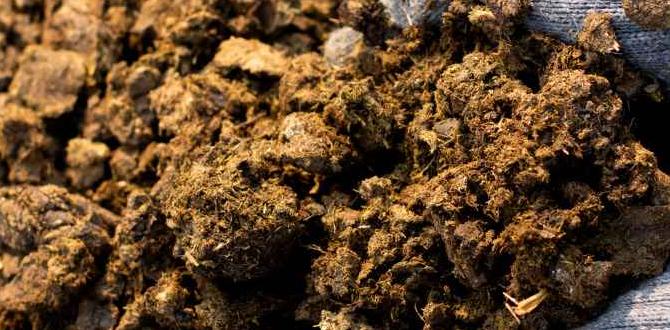
Different types of manure can help your garden grow strong and healthy. Here are some common types:
- Chicken manure: Rich in nitrogen, great for leafy plants.
- Cow manure: Balances nutrients and improves soil texture.
- Horse manure: Contains fiber and enriches soil, but should age first.
- Sheep manure: Packed with nutrients, helps plants thrive.
Using organic manure benefits the soil health more than synthetic options. Organic manure promotes biodiversity in the soil. It also retains moisture better. Less energy is needed for producing it. Manure from animals can be a natural solution to gardening needs.
What are the benefits of using manure in gardening?
Manure helps plants grow. It adds nutrients like nitrogen and phosphorus. This makes soil richer. Using manure can also improve water retention in the soil, which keeps plants healthy.
Types of Manure Nutrients
- High nitrogen: Chicken
- Balanced nutrients: Cow
- Good for fibers: Horse
- Rich in nutrients: Sheep
How to Choose the Right Manure for Your Garden
Factors to consider: soil type, plant needs, and local availability. Comparison of nutrient contents and application rates.
Choosing the right manure for your garden can be tricky. First, think about your soil type. Sandy soil needs different goodies than clay soil. Next, consider what your plants crave. Some love protein, while others prefer carbs—just like us! Local availability is key too. If you can find fresh manure nearby, it beats a long trip! Check out this nutrient comparison chart:
| Manure Type | Nitrogen (%) | Phosphorus (%) | Potassium (%) |
|---|---|---|---|
| Cow Manure | 0.5 | 0.2 | 0.5 |
| Chicken Manure | 1.1 | 0.8 | 0.5 |
| Horse Manure | 0.6 | 0.3 | 0.4 |
Remember, application rates also matter! Too much manure can be like eating too much pizza—fun at first but messy later. Happy gardening!
How to Prepare Manure for Use in the Garden
Composting: processes, time frames, and safety measures. Raw vs. aged manure: pros and cons.
To prepare manure for your garden, start by composting it. This helps break down waste and makes it safer. The process can take several months, so be patient. Always check for bad smells or pests during this time.
There are two types of manure: raw and aged. Aged manure is better because it’s composted longer. It’s less likely to harm plants or cause bad odors. Here’s a quick look:
- Raw Manure: Fast to obtain, but can contain harmful bacteria.
- Aged Manure: Safer for plants, takes longer to prepare.
Always wear gloves and wash your hands after handling manure. Keeping safe means your garden will grow healthy and strong!
Should I use raw or composted manure in my garden?
Composted manure is best. It’s safer and provides more nutrients for your plants without harmful bacteria.
Best Practices for Applying Manure
Timing: when to apply for maximum benefit. Techniques: surface application, tilling, and deep incorporation.Timing is important when applying manure. Spread it in early spring or fall for the best results. This helps your plants grow strong and happy. For applying, consider three techniques. First, you can spread it on the surface. Or, mix it in the soil by tilling. Lastly, deep incorporation means burying it several inches under. This can really help the soil! It’s like giving your garden a big hug. Here’s a quick table to remember the best techniques:
| Technique | Description |
|---|---|
| Surface Application | Spread it on top of the soil. |
| Tilling | Mix it into the soil. |
| Deep Incorporation | Bury it several inches underground. |
So, pick a method and get ready for a garden that shines like the sun!
Potential Risks and How to Mitigate Them
Pathogen concerns and how to ensure safety. Nutrient runoff and its environmental impacts.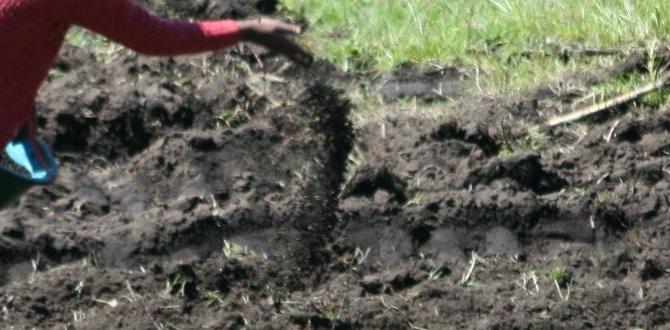
Using manure for gardening can carry some risks. Pathogens in manure can make people sick. To stay safe, always compost manure before using it. This process kills harmful germs. Nutrient runoff is another problem. Enriched water can contaminate lakes and rivers. To prevent this, use manure wisely. Only apply it when needed and keep it away from water sources.
How can I ensure safety when using manure?
Compost manure properly, use protective gear while handling it, and store it in a dry place away from water sources. This helps keep both you and the environment safe!
Manure as a Soil Amendment vs. Fertilizer
Differences in function and benefits. Combining manure with other soil amendments.Manure helps improve soil but works differently than fertilizer. Manure adds nutrients and supports healthy organisms. Fertilizer mainly gives quick nutrients for plants. Combining them can boost results.
- Manure feeds the soil and builds structure.
- Fertilizer provides instant help for growing plants.
- Mixing both can lead to thriving gardens.
Want a powerful garden? Using a combo of manure and fertilizer can make your plants happy and healthy!
What is the benefit of using manure in gardening?
Manure improves soil health, retains moisture, and increases nutrients. It helps plants grow strong and can replace chemical fertilizers.
Success Stories: Case Studies of Manure Use in Gardening
Examples of gardeners who successfully integrated manure. Lessons learned and tips from these case studies.
Many gardeners have found success by adding manure to their soil. For example, a community garden in Springfield reported a 50% increase in vegetable yields after using cow manure. They learned that composting manure first made it even better. It breaks down nutrients, making them easier for plants to absorb. Here are some tips from successful users:
| Gardener | Manure Type | Result | Tip |
|---|---|---|---|
| John | Chicken | Better tomatoes | Mix it well with soil! |
| Lisa | Cow | Huge carrots | Wait at least 3 months! |
| Mike | Horse | Lush flowers | Use in spring! |
The key is patience! Manure is like waiting for the perfect pizza. You want it just right before enjoying the delicious results!
Alternatives to Manure for Organic Gardening
Other organic fertilizers and soil amendments. Advantages and disadvantages compared to manure.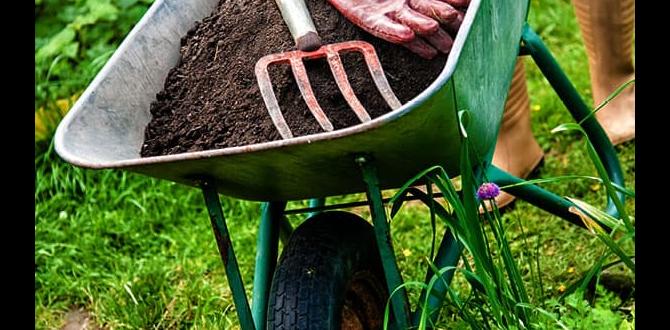
Many gardeners look for alternatives to manure for gardening. Organic fertilizers and soil amendments can help plants grow. Here are a few options:
- Compost: This is made from kitchen scraps and yard waste. It helps soil but takes time to break down.
- Mulch: Organic materials spread on soil. They keep moisture in and stop weeds, but they need to be refreshed often.
- Bone Meal: This adds phosphorus for strong roots. It is slow-release, which means plants get nutrients over time.
- Fish Emulsion: A liquid fertilizer rich in nutrients. It works quickly, but the smell can be strong.
Each has its own advantages and disadvantages compared to manure. Compost is great for recycling waste, while fish emulsion gives quick results. Choose what works best for your garden!
What are some easy alternatives to manure?
Some easy alternatives include compost, mulch, bone meal, and fish emulsion. They help plants grow but may work differently than manure.
Conclusion
In conclusion, manure is a fantastic way to enrich your garden. It adds nutrients, improves soil structure, and helps plants grow strong. You can use it easily by mixing it into the soil. Remember to compost it first for the best results. Next time you garden, consider using manure. Happy gardening, and feel free to explore more resources on this topic!FAQs
What Are The Different Types Of Manure Suitable For Gardening, And How Do Their Nutrient Contents Vary?There are several types of manure you can use for gardening. Cow manure is rich in nitrogen and good for plant growth. Chicken manure has even more nitrogen and helps plants grow faster. Horse manure is gentle and adds lots of nutrients but takes longer to break down. Each type helps your garden in different ways, so you can choose what works best for you!
How Should Manure Be Composted Or Aged Before Adding It To A Garden To Prevent Burning Plants?To compost manure safely, you should let it sit for several months first. This helps it break down and reduces strong smells. You can mix it with dry leaves or grass to help it break down faster. Before using it in your garden, make sure it feels crumbly and dark. This way, it won’t hurt your plants!
What Are The Benefits Of Using Manure In The Garden Compared To Synthetic Fertilizers?Using manure in the garden is good because it adds nutrients to the soil. It helps plants grow strong and healthy. Manure also improves soil structure, making it easier for plants to get water. Unlike synthetic fertilizers, manure is natural, so it’s better for the earth and our food. Plus, it helps keep good bugs in the garden!
How Do You Determine The Appropriate Application Rates For Manure In Different Types Of Gardens (E.G., Vegetables, Flowers, Shrubs)?To find the right amount of manure for your garden, you need to consider what you’re planting. For vegetables, use less manure because they grow fast and can get too much food. Flowers might need a bit more because they last longer and love nutrients. For shrubs, you can use a moderate amount since they need steady nutrition to grow strong. Always remember to mix it well into the soil!
What Precautions Should Be Taken When Using Manure To Minimize The Risk Of Pathogens Or Contaminants In A Vegetable Garden?When you use manure in your vegetable garden, make sure to compost it first. Composting helps kill harmful germs. You should also wear gloves and wash your hands after touching the manure. Always keep the manure away from the plants that you eat directly. Finally, give the veggies time to grow after using manure, so they stay safe and healthy.

